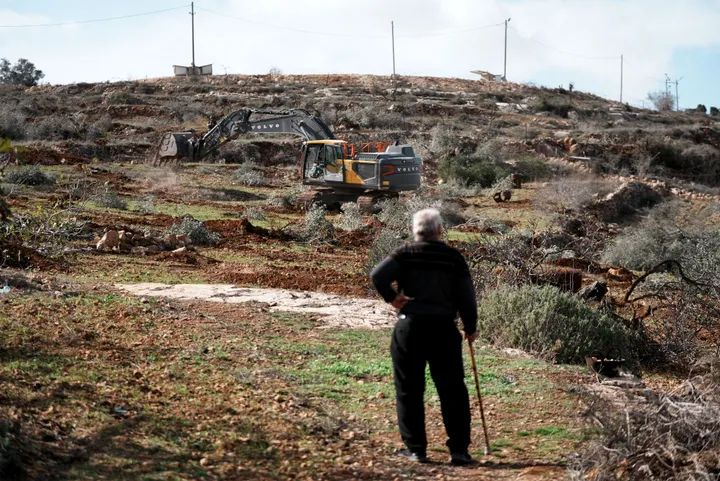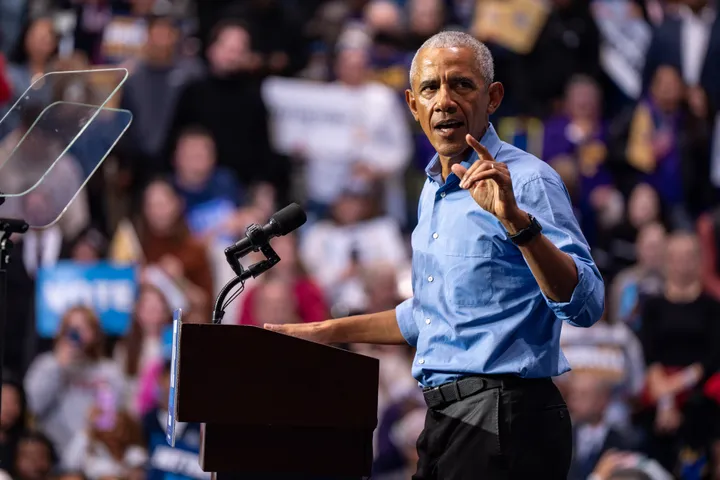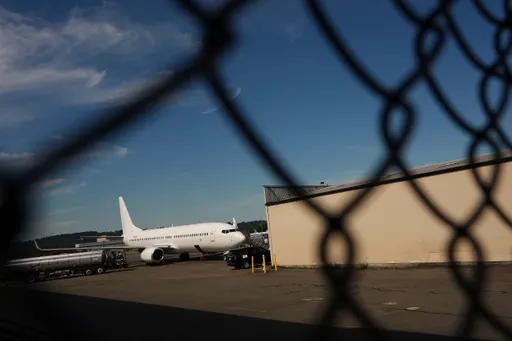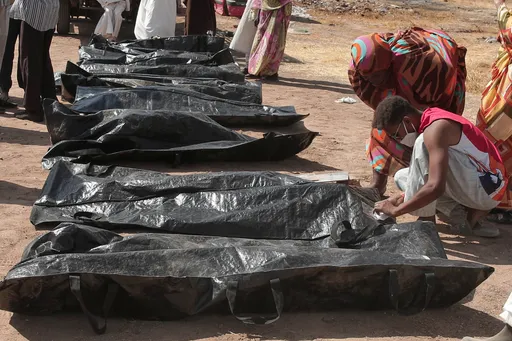By Coletta Wanjohi
Fashion designer Rachel Anekea's shop at Sunbeam Mall on Nairobi's Mfangano Street was more than just a business for her. It was a labour of love.
For 15 years, she poured her heart, strength, and resources into a venture she believed would grow into a brand. Over time, she invested in three sewing machines to cater to her growing client base.
Things were going well for her until June 25, 2024, brought the unexpected.
Amid raging protests over tax hikes envisaged in the Kenya Finance Bill, unidentified arsonists set ablaze the building that housed Rachel's shop. As Sunbeam Mall was enveloped in flames, someone informed the mother of one about what had happened.
Rachel could feel the ground beneath her feet slip as the enormity of what she had just heard sank in.
"It was a day of anti-tax protests led by our young, who truly have a genuine cause," she tells TRT Afrika.
"I was also out that day to be part of history in the making. Who could have imagined that it would culminate in what happened at the mall?"
Rachel was told that a group of people tried to barge into the mall, which had been kept shut for the day as a precautionary measure.
"When the security refused to let them in, they came back with a lot of rage, forced their way in and poured petrol everywhere before setting fire to the building," she recounts, her voice trembling at the memory and her eyes welling up.
"I lost my sewing machines and the clothes that clients had ordered. About 600 families whose livelihood depended on the businesses operating from that building are left with no income. I have nothing."
Besides the material losses, Rachel and many others with businesses and jobs at Sunbeam Mall are traumatised by the thought of those who died that day.
A supermarket called Quickmart was looted on the same street as the mall, while vandals targeted another called Naivas on Moi Avenue in the central business district.
Several other parts of Kenya witnessed similar acts of lawlessness. Given the prevailing situation, Nairobi-based cab driver David Murage is worried about a bank loan he took just last month.
"When I took the loan to inject into my taxi business, the prospects looked good because we were entering a peak period of foreign tourist inflow. I bought another car, not knowing what lay ahead," he tells TRT Afrika. "Some tourists who had contacted me for travel between August and September have cancelled their bookings. They are scared after watching scenes from the three-week-long protests."
Widespread damage
President William Ruto told journalists at a briefing on June 30 that public and private assets worth over US $18.6 million (2.4 billion Kenyan shillings) had been destroyed.
"The office of the Chief Justice has been burned, the City Hall has been burned, and the parliament has been burned. This is the situation," he said.
The anti-finance bill protests, led by young people, started on June 18 and were initially described as non-violent and focused. "We are peaceful" was one of the slogans that rang out as protesters ran into occasional police resistance. No vandalism was reported until June 25, when the parliament building and other sites came under attack.
Officially, over 20 people were reported to have died in clashes with police that day. But the Kenya National Commission on Human Rights put the death toll at not less than 39. On June 26, President Ruto said he wouldn't sign the finance bill. The next day, protesters still took to the streets, with some demanding that he step down.
The clamour for Ruto's resignation coincided with rampant vandalism, with properties in Nairobi bearing the brunt.
President William Ruto condemned the violence, saying the demonstration were hijacked those he called ‘’criminals’’ and vowed to punish them.
Raila Odinga, leader of the opposition coalition Azimio la Umoja, also believed criminals hijacked the peaceful protests. He condemned the vandalism. "Scenes of people looting, vandalising, and pillaging are way different from what was witnessed at the start of the protests when Gen Z was in complete control," he said.
The Directorate of Criminal Investigations (DCI) put out photos of people suspected of having been involved in the vandalism and sought help from the public to identify the rest.
Counting the losses
For many like Rachel whose businesses were vandalised, the future is uncertain in more ways than one. Even if the situation were to return to normal soon, she doesn't know what to tell clients whose paid orders were destroyed in the fire. She also doesn't know how to resuscitate a business that took 15 years to build and was destroyed in one day.
Rachel regrets not having the foresight to buy insurance to recoup her losses. "We are small businesses; we never think of insurance. How would I know that I would lose my property to vandalism?"
The owner of the space she had rented isn't taking calls, adding to Rachel's agony. "I fear losing my sanity. I am at the mercy of well-wishers," she tells TRT Afrika.
➤ Click here to follow our WhatsApp channel for more stories.










.JPG?width=512&format=webp&quality=80)










